
DiSC® for relationships
Relationships are complex. There are many variables in addition to personality, but it’s an important one. Knowing how others are likely to differ from you and valuing these differences will make your relationships more rewarding, whether you’re thinking about your relationship with your boss, your neighbor, a friend, or your plumber.
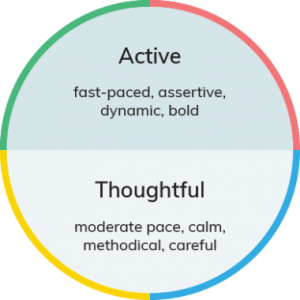
How DiSC personalities work together
Simple differences can make big differences in how people look at the world and behave in it.
The DiSC® model measures two fundamental dimensions of human nature:
- Active and assertive (D and i styles) to thoughtful and calm (S and C styles)
- Questioning and objective (C and D styles) to accepting and empathizing (i and S styles)
Each of these styles experiences the world a bit differently, offering its own unique sets of strengths and challenges.
People at different ends of these two scales can easily become frustrated with each other. The more thoughtful and methodical friend can feel rushed by the faster-paced one. The more questioning friend might think their more accepting friends are paying attention to the wrong things. And vice versa, of course.
The DiSC D and S types are considered opposite of each other, as are the i and C types. It’s often these personalities directly across from each other on the Everything DiSC® map who find themselves clashing or complementing each other. They tend to express themselves in different ways and from different sets of priorities.
However, even those with the same DiSC style can express that style differently. In the example below, you’ll see that two people sharing the same scores on the skepticism to acceptance scale can still experience roadblocks in their relationship with each other.
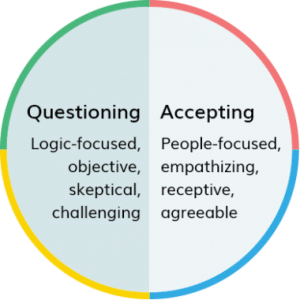


Both similar and divergent personalities can work in sync or collaboratively. We do this by acknowledging and seeking to understand the needs and priorities of others. People in strong relationships learn to speak for their own needs and also adapt their behaviors to meet the needs of others.
We suggest three ways personalities can work better together.
Relationship strategies using DiSC
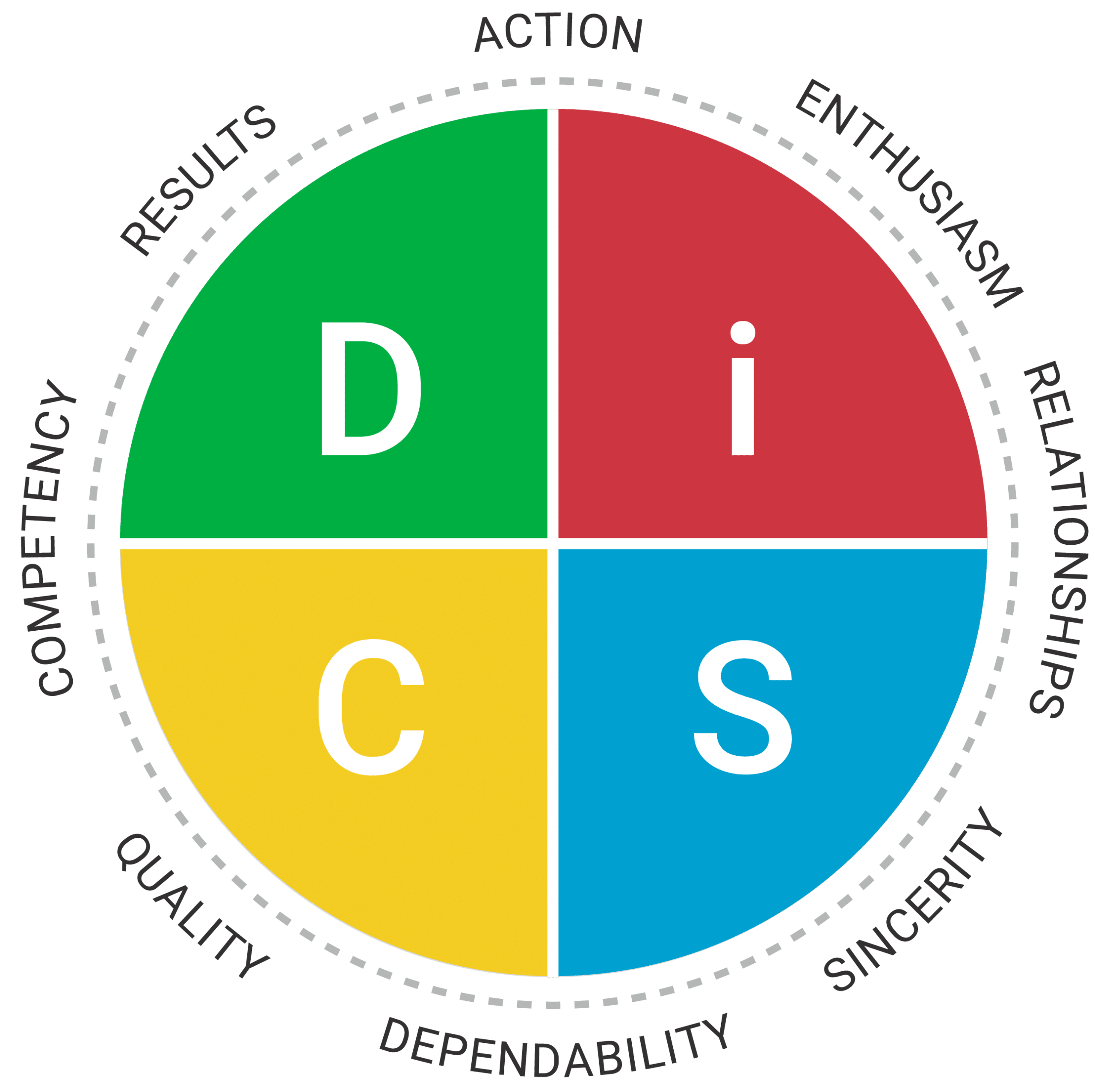
Agree on a common goal
Personalities have differing objectives and priorities. If you look at the Everything DiSC® Sales map shown here, you’ll see how everyone involved in a purchase or a pitch will prioritize things differently. None is better than another; they are just different.
How might these differences play out?
Your friend might be pitching a group vacation by imagining how great it will be to all reconnect. Another friend is focused on determining how you’ll choose the hotels and transportation. Yet another friend is excited about showing you a favorite site. The fourth friend pushes everyone to decide on a date so the trip can be scheduled. These differing priorities have the potential to produce a better trip for everyone because the friends agreed on a goal and are all focused on contributing their strengths toward reaching it.
Relationships can become strained during times of choice or action, however, if you haven’t talked about your goals and agreed upon them first. In the workplace, this alignment can be a bit easier. Your organization might have provided you with mission and vision statements that can provide work direction and focus. With your personal relationships, this typically isn’t as clear.
These personal agreements on goals can be subtle or focused discussions about expectations and wants. These goals might not even be recognized until one person feels that an agreement has been violated, so it’s beneficial to have them out in the open.
It’s important to avoid making assumptions that others want the same things as you and will behave as you would. For example, you might agree that you want to repair a friendship. Once that is established, you can begin the harder work of determining what that means to each of you and how your behaviors can contribute to that goal.
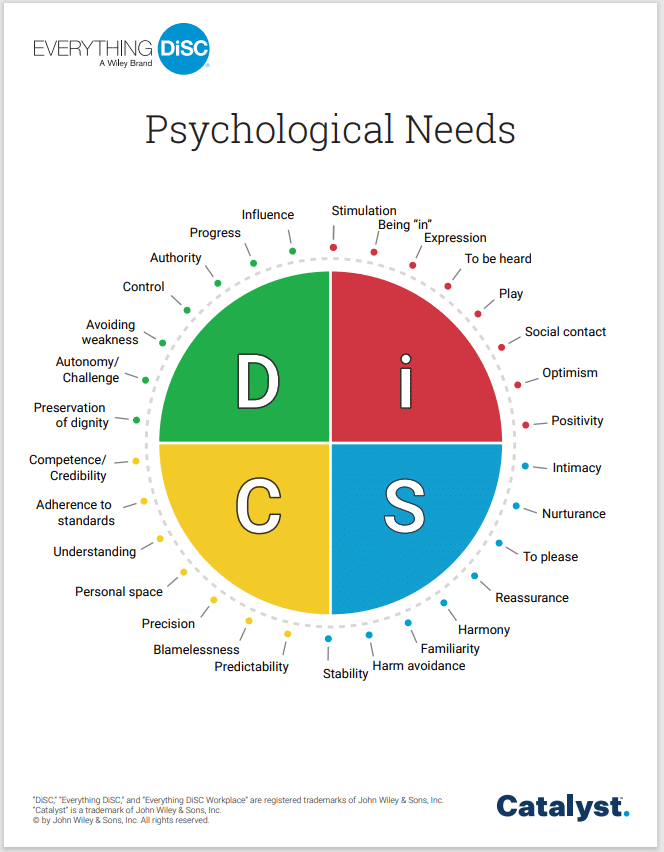
Understand motivations
We are motivated by our own needs. DiSC can help you clarify both your own needs and those of others. Counselors often suggest using “I” statements. These reflect the importance of your own observations, experiences, and preferences without insisting that they are the only ones possible or the only ones that are right.
Perhaps you and a partner are looking for a new apartment and have agreed on your goals around price, location, etc. But you still find yourself in conflict. This could be because your motivations differ. For example, you have a DiSC Di style and are motivated by action. You place a high value on making a quick decision and want to see as many places as possible in a single day. It takes a lot of energy for you to hold back and move more methodically, so you prefer not to. But this might be what your partner with a CS style wants. People with this style are motivated by stability and will value time spent evaluating each apartment; they need to know that they made the best choice possible. Together you can decide how you want to weigh each person’s needs.
It’s easier to compromise in a relationship if you understand that some people will need to expend more energy to meet your needs. My i-style friends need much more stimulation than I do, so I really appreciate it when they are willing to once again meet me at my favorite quiet café. I know they are making a choice based on my motivations, not theirs. And I’m much less likely to be offended when a CD-style friend calls out my admittedly poor driving because they are motivated by finding and fixing errors and they aren’t trying to shame me. If any group remains friends, it’s likely because each one has learned to occasionally adapt or accommodate to meet the interests or motivations of the others.
Tailor your approach
The better you understand how others’ interests and priorities differ from your own, the better you can take those into consideration. You can become more considerate and respectful of others, improving your relationships.
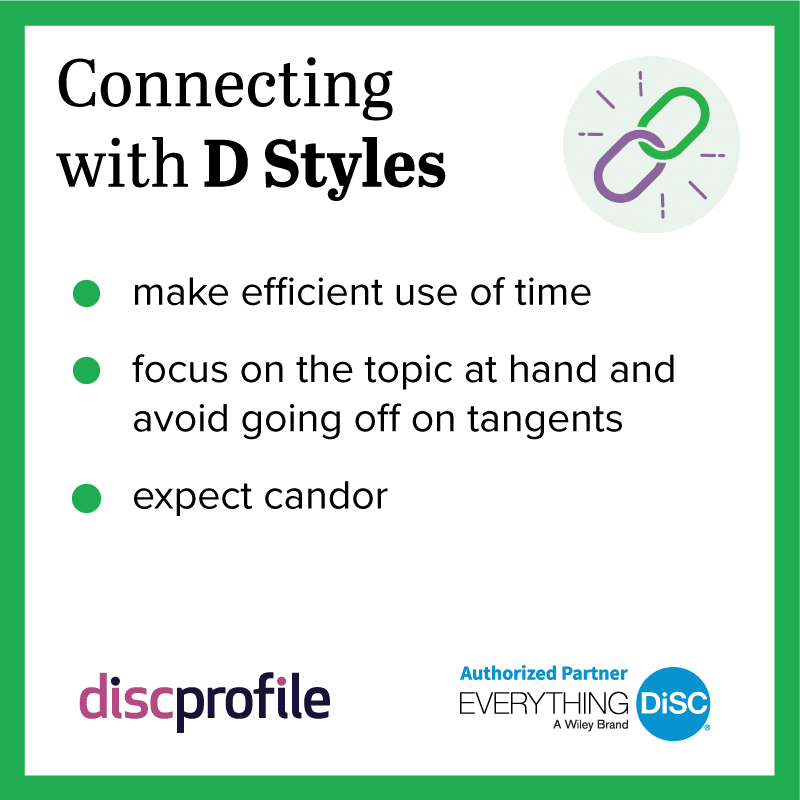
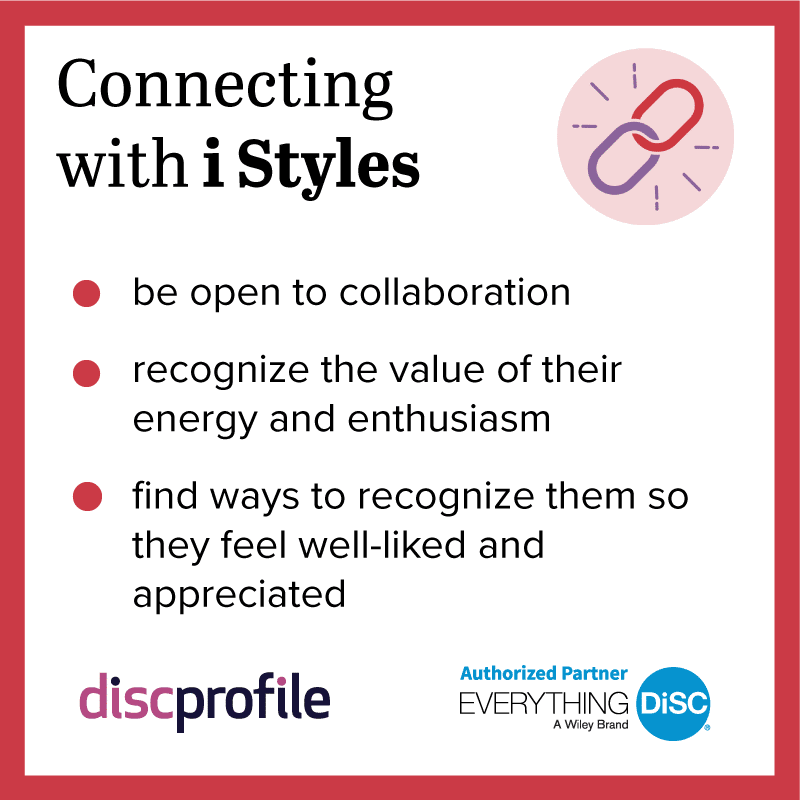
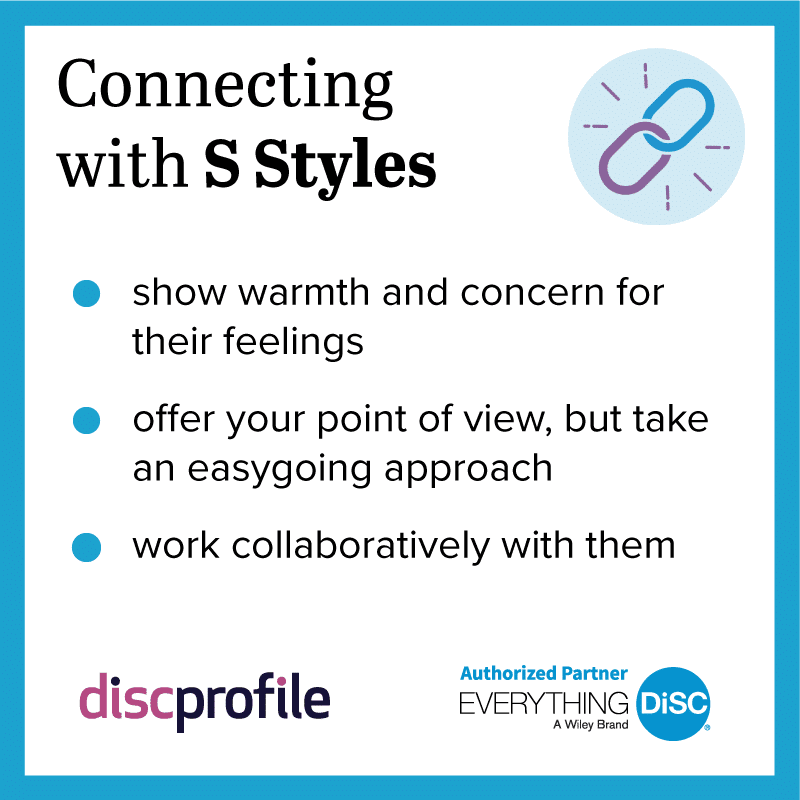
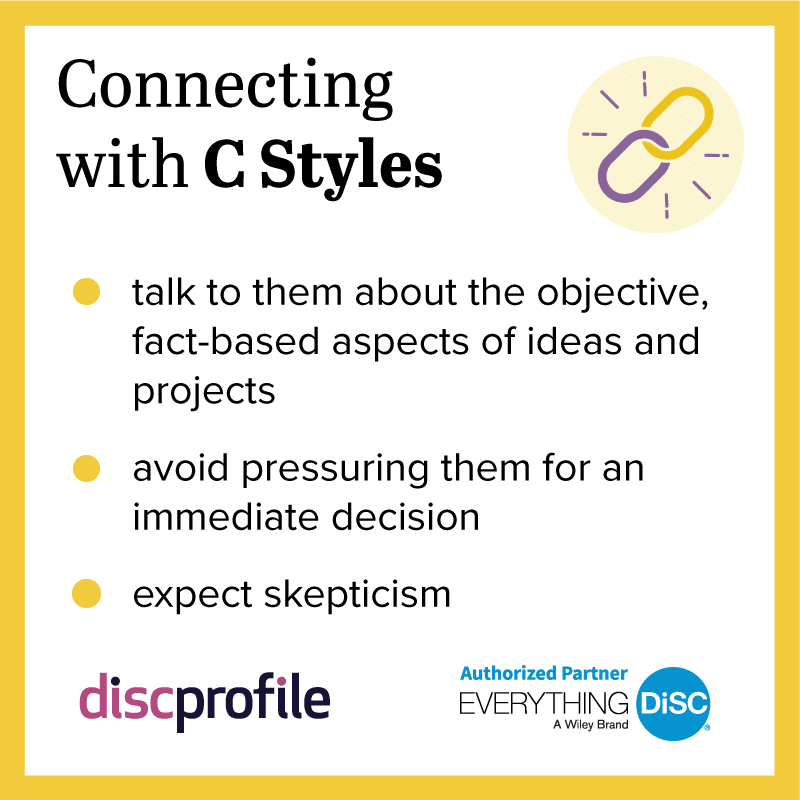
This understanding is also helpful if you find yourself struggling with another person, or needing to solve a problem with them.
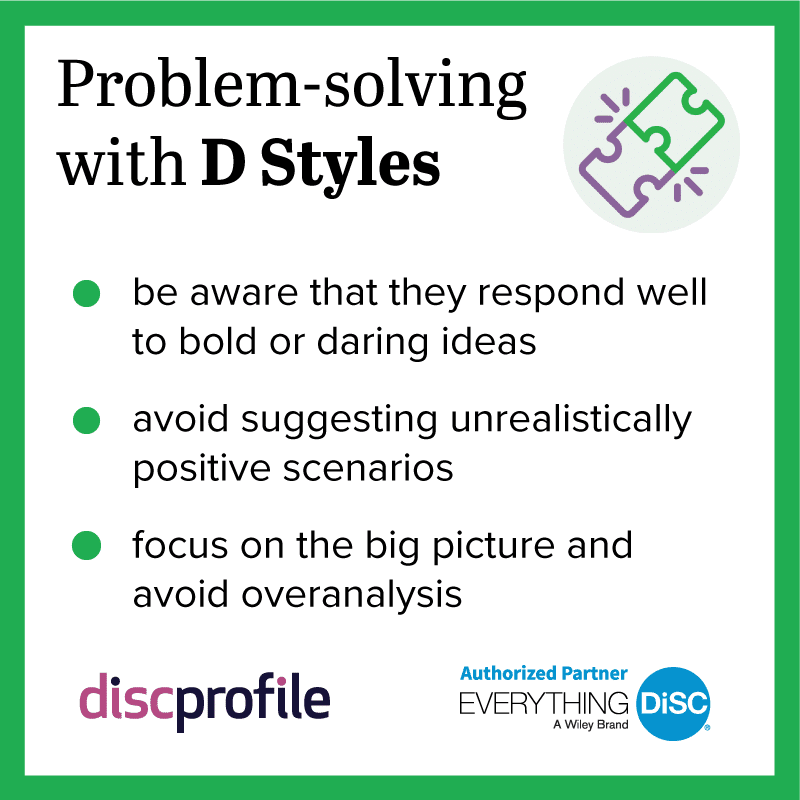

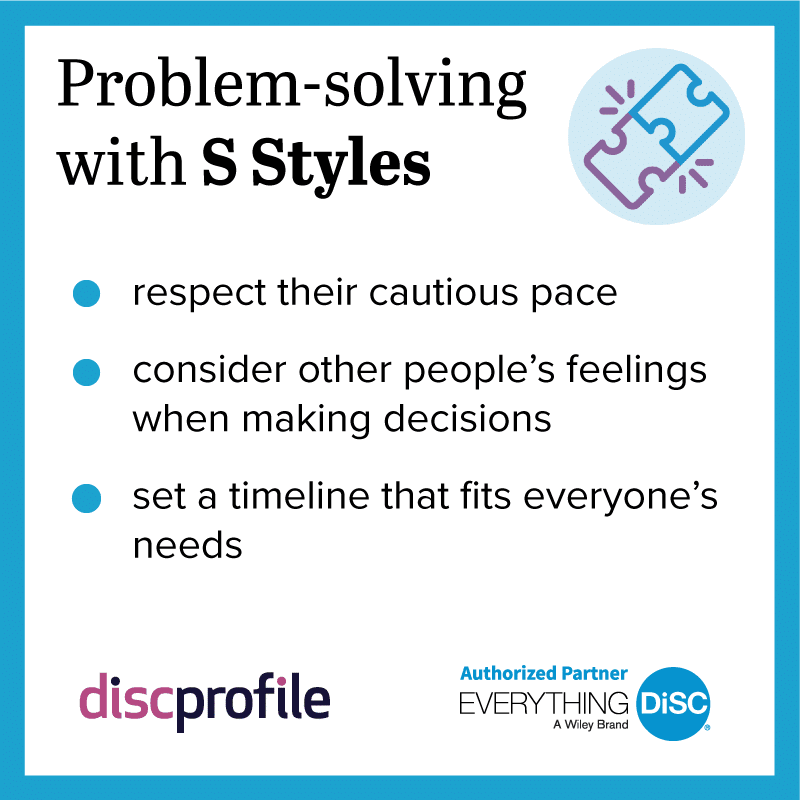
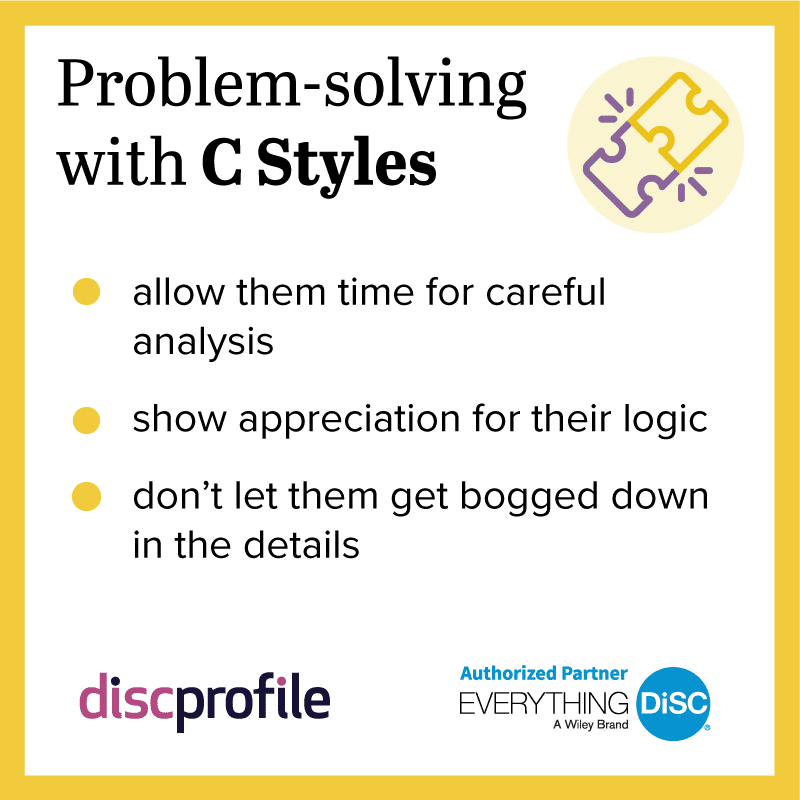
Relationships are complicated. If you’re struggling in a relationship, we believe taking an Everything DiSC assessment for yourself can provide insights into how personality traits might be at least part of the issue. DiSC identifies the strengths you bring to relationships and areas where you might be challenged. Asking another to take the same assessment and looking at a Comparison Report together or just talking about your styles can create a space and language for resolving conflicts. It can also help you establish rules for how you’ll handle conflict in the future.
Showing appreciation for differences is a way of strengthening friendships. And friendships are so important in our lives. The Mayo Clinic reports that “adults with strong social connections have a reduced risk of many significant health problems, including depression, high blood pressure, and an unhealthy body mass index (BMI). In fact, studies have found that older adults who have meaningful relationships and social support are likely to live longer than their peers with fewer connections.” An understanding of DiSC can help build and maintain social connections.
No personality assessment examines all variations in personality, nor do they address every source of conflict in relationships. Personality differences might not be the issue a pair or a group needs to confront. If you’re experiencing profound struggles in a relationship, you might be served best by a counselor or therapist.
Popular DiSC assessments
DiSC can give you individualized, actionable tips for getting through stressful times with your partner. It can bring focus and direction to your conversations, rather than finding yourselves having the same argument you’ve had a hundred times already, or orbiting each other in silent stand-off.
Help couples build trust and improve communication with Everything DiSC.
How our brains can stand in the way of productive workplace conflict, how conflict impacts efficiency and engagement, how hidden and counter-intuitive our conflict responses can be, and how CBT (reframing your thoughts) can unleash productive conflict responses instead.
